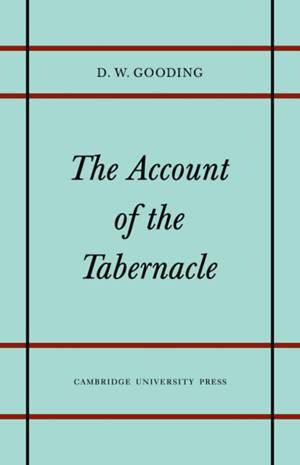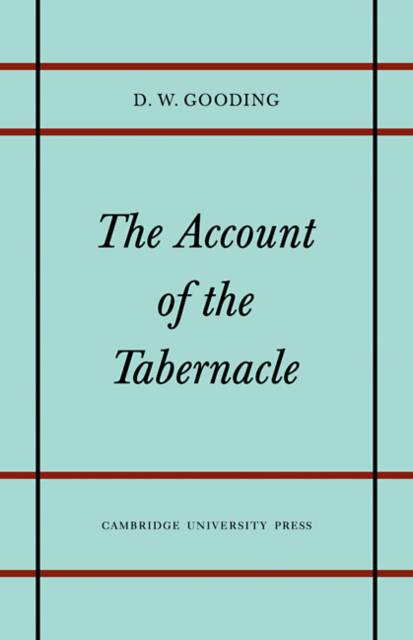
- Afhalen na 1 uur in een winkel met voorraad
- Gratis thuislevering in België vanaf € 30
- Ruim aanbod met 7 miljoen producten
- Afhalen na 1 uur in een winkel met voorraad
- Gratis thuislevering in België vanaf € 30
- Ruim aanbod met 7 miljoen producten
Zoeken
The Account of the Tabernacle
Translation and Textual Problems of the Greek Exodus
David W Gooding, Gooding D W
Paperback | Engels
€ 67,95
+ 135 punten
Omschrijving
The relation of the Septuagint to the original Hebrew is of major importance to the study of the Old Testament. In the closing chapters of Exodus this relation becomes notoriously obscure; in recording the execution of God's instructions for the making of the tabernacle and the priests' vestments, the Greek differs seriously both in order and content from our present Hebrew text. This raises the problem of how the Greek and Hebrew accounts came to stand in their present form, why they differ so widely, and which represents the older tradition. Scholars during the last century have been almost unanimous in maintaining that the Greek account is earlier than the Hebrew and is translated from a primitive (and now supposedly lost) text. Moreover, because of inconsistencies in technical terms, this part of the Greek Exodus is thought to be the work of a second translator. Dr Gooding puts forward a completely different explanation. This lively, clearly written and controversial book will be of particular interest to theologians and biblical scholars.
Specificaties
Betrokkenen
- Auteur(s):
- Uitgeverij:
Inhoud
- Aantal bladzijden:
- 132
- Taal:
- Engels
Eigenschappen
- Productcode (EAN):
- 9780521111638
- Verschijningsdatum:
- 11/06/2009
- Uitvoering:
- Paperback
- Formaat:
- Trade paperback (VS)
- Afmetingen:
- 140 mm x 216 mm
- Gewicht:
- 176 g

Alleen bij Standaard Boekhandel
+ 135 punten op je klantenkaart van Standaard Boekhandel
Beoordelingen
We publiceren alleen reviews die voldoen aan de voorwaarden voor reviews. Bekijk onze voorwaarden voor reviews.











